The University of the West Indies and the Caribbean are celebrating the first formal act of Reparation of a twenty million pound £ contribution to research from the University of Glasgow.
History was created today on the eve of Emancipation Day July 31, 2019, when the University of Glasgow, Scotland and The University of the West Indies, signed a Memorandum of Understanding (MOU) whereby the two institutions will partner in a reparations strategy of research for Caribbean development. Under the terms of the MOU, the two universities will establish the Glasgow-Caribbean Centre for Development and Research which will operate from within both universities. The University of Glasgow has committed to spending 20 million pounds over a period of 20 years as part of its programme of reparative justice, including seed funding, benefactions and research grant income, raised from grant-giving bodies. The University of Glasgow will allocate resources to support the running of the Centre, scholarships, research, public engagement and related activities. It is well-positioned to do so; it has one of the largest research bases in the UK with research income of 180 million pounds and is a member of the elite Russell Research Group of 24 major research universities. It is especially noted for research in precision medicine and chronic diseases.
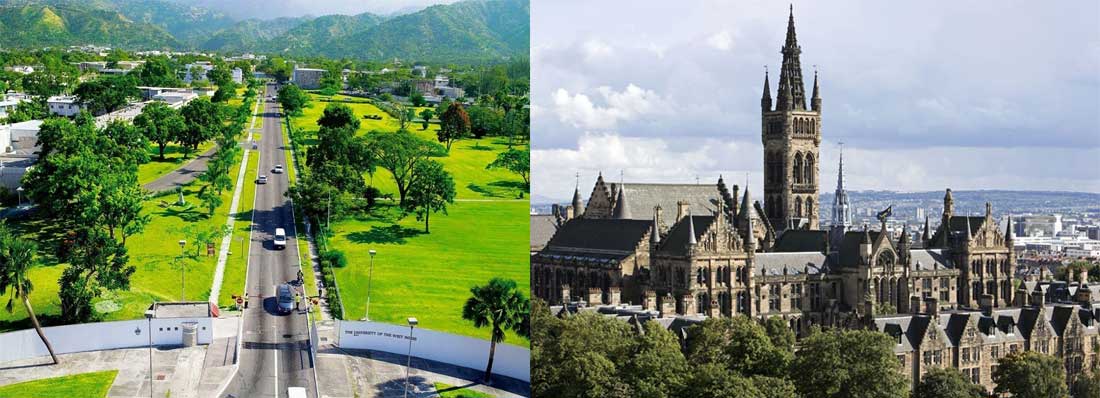
The historic MOU was signed at a ceremony held at the University of the West Indies Regional Headquarters, by the Vice-Chancellor of The UWI, Prof. Sir Hilary Beckles and the Dr. David Duncan, Chief Operating Officer and University Secretary of the University of Glasgow in the presence of senior members of the UWI administration.
WHAT WILL THE GLASGOW-CARIBBEAN CENTRE DO?
The Centre will be administered by a joint board and its activities and allocations will be guided by the principle of reparatory justice. The Centre’s reparatory-oriented policy research will address the legacies of slavery and colonialism revolving around the broad areas and issues of public health-specifically chronic disease proliferation, persistent poverty and inequality in economic relations, educational inadequacies and other factors that adversely affect economic growth and social justice in the Caribbean Region.
What the UWI Vice-Chancellor had to say
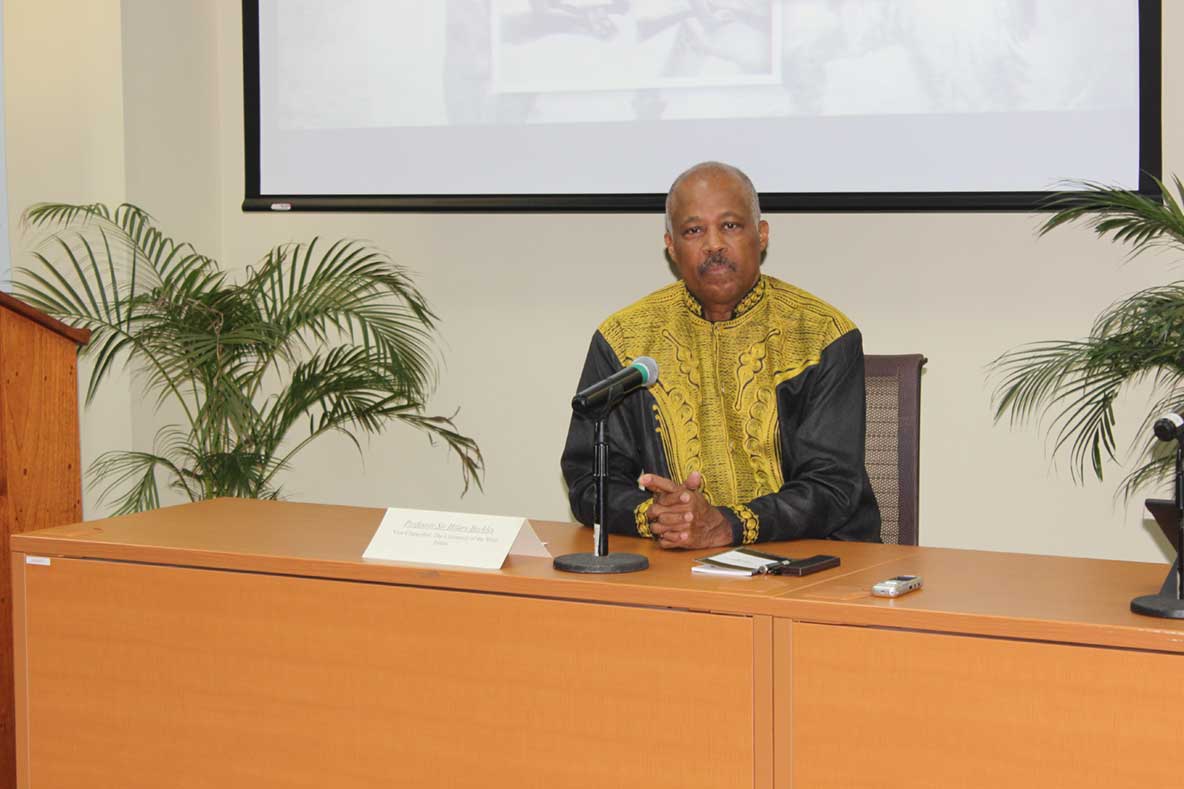
In his remarks, Sir Hilary Beckles noted that for the Caribbean this was the first formal response to its call for reparatory justice. He observed that historians in both the Caribbean and in Scotland have long been aware of the role played by the City of Glasgow in the development and sustainability of African enslavement in the Caribbean and elsewhere, as well as the financial support given to enslavers in the Caribbean to the University of Glasgow. However, it was the information contained in a report commissioned by the University of Glasgow that revealed the exact dimensions of endowments which the University of Glasgow received from owners and managers of slave-produced wealth, that provided the ethical context and empirical basis for what has resulted in the partnership with the UWI. In the UWI Vice-Chancellor’s words:
“They [The university of Glasgow] have not done as many universities with a similar engagement with slave-produced wealth have done, that is to “Research and run.” Research and run has indeed become the norm for many universities in Britain, Europe and North America. Rather than stand and plan, they “researched and ran.” Not so with the University of Glasgow. It has provided for a partnership with the University of the West Indies which is cast within the framework of reparatory justice for the victims of slavery and colonialism.”
From the Point of View of the University of Glasgow………………

Dr. David Duncan, himself an historian and also Chair of the History of Slavery Committee at the University of Glasgow, spoke of the University’s long history of acknowledging and making amends for the benefits it received from the proceeds of slavery and the slave trade. To date the University has been able to identify some 198 million pounds it received over the years by way of donations from those involved or who benefited, including those who received compensation from the British government at Emancipation. 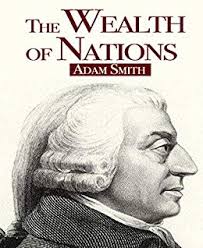 These donations helped to fund scholarships and erect buildings that today make up the physical structures of the 4th oldest university in the English-speaking world and which is ranked among the top 1% of universities worldwide. The father of Economics, Adam Smith who condemned slavery in his Wealth of Nations was not only an alumnus but was later honoured by the University, as were abolitionists William Wilberforce and Thomas Clarkson. Referring to the Report coming out of the University’s commissioned study of its links with historical slavery, Dr. Duncan said:
These donations helped to fund scholarships and erect buildings that today make up the physical structures of the 4th oldest university in the English-speaking world and which is ranked among the top 1% of universities worldwide. The father of Economics, Adam Smith who condemned slavery in his Wealth of Nations was not only an alumnus but was later honoured by the University, as were abolitionists William Wilberforce and Thomas Clarkson. Referring to the Report coming out of the University’s commissioned study of its links with historical slavery, Dr. Duncan said:
“From the very first, we were determined to be open, honest and transparent with the findings, and to produce a programme of reparative justice.”
Several video messages were beamed to the ceremony including Jamaica’s Minister of Culture Gender, Entertainment and Sports, Hon Olivia Grange under whose ministry the Jamaica National Commission for Reparation falls; the Prime Minister of St Vincent and the Grenadines, Hon Ralph Gonsalves; the Hon Mia Mottley, Prime Minister of Barbados who is the lead CARICOM Prime Minister with responsibility for Reparations and Mr Don Rojas a US-based long-time advocate of reparations.
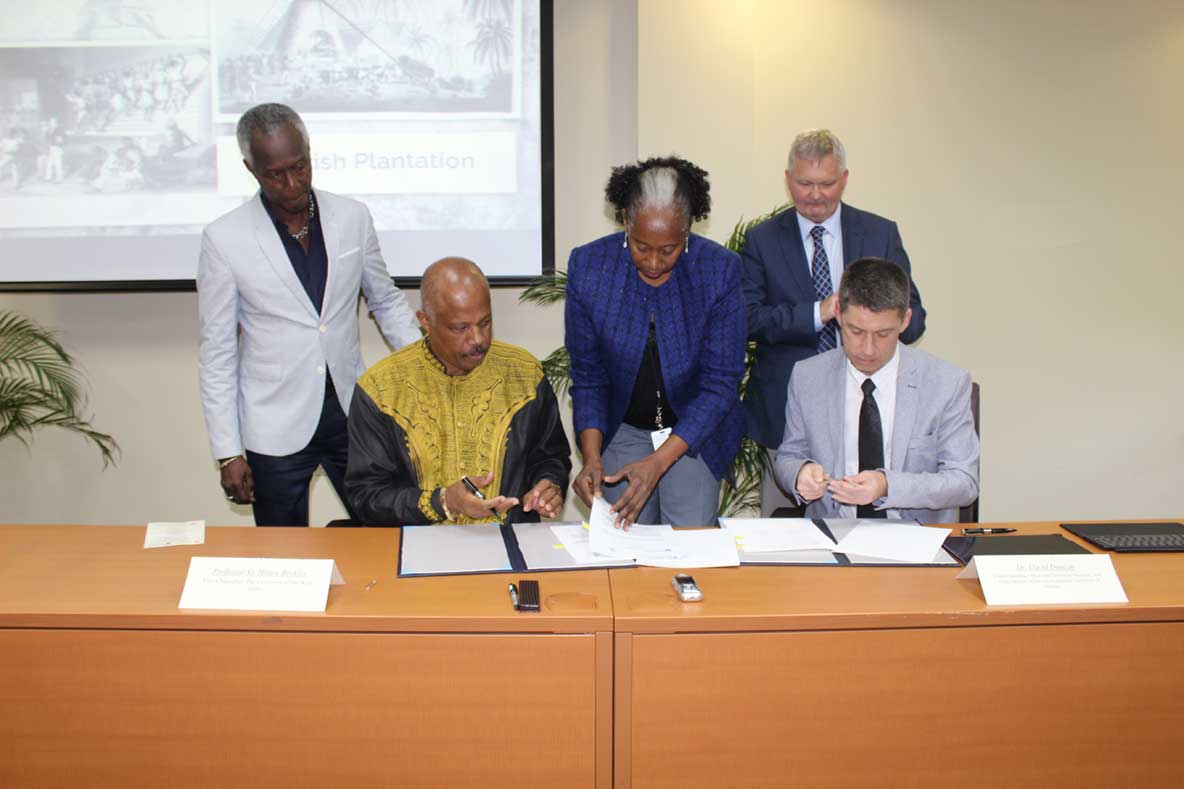
Front left: UWI Vice-Chancellor, Sir Hilary Beckles
Right: Dr David Duncan COO, University of Glasgow
Witnessing the signing are William Iton, UWI Registrar, Laleta Davis-Mattis, UWI Legal Counsel and Dr Peter Aitchison, Director of Communications and Public Affairs, University of Glasgow
Another commemorative signing of the MOU is scheduled at the University of Glasgow on August 23, 2019 coinciding with UNESCO’s International Day of Remembrance of the Slave Trade. The ceremony will include the unveiling of a commemorative plaque in honour of the enslaved.
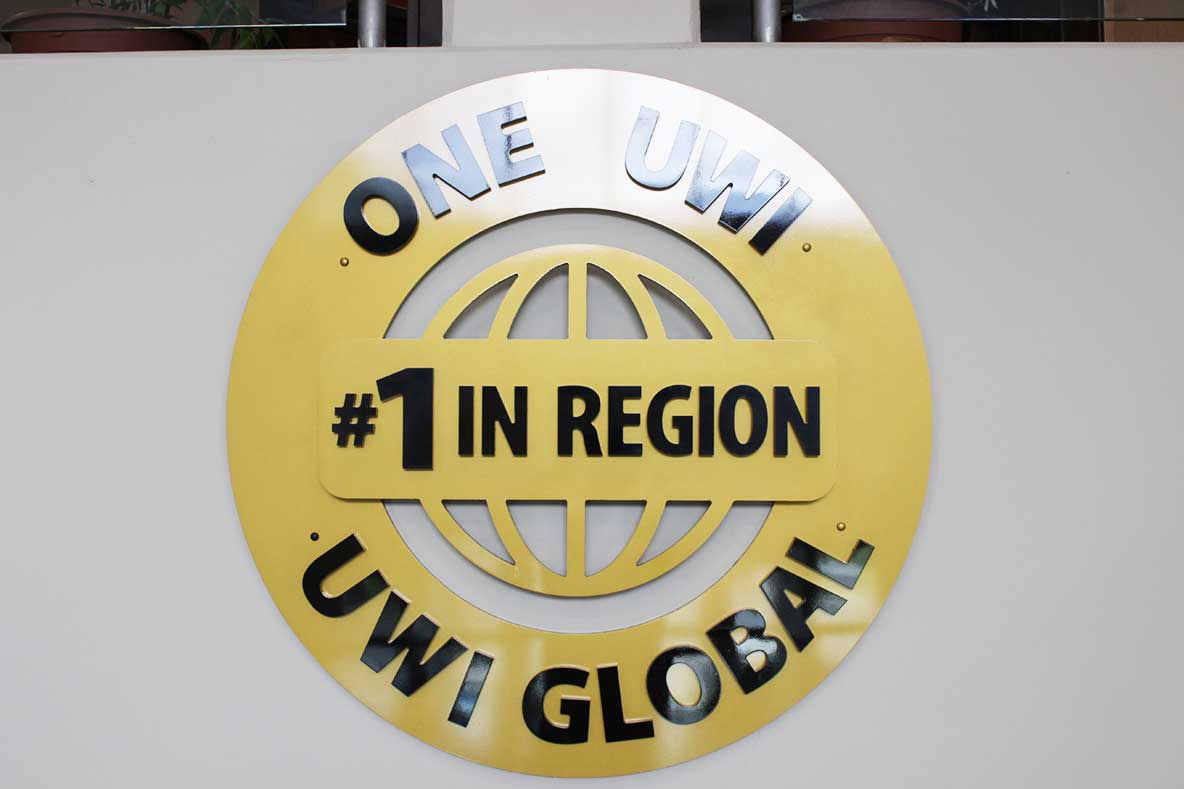
The establishment of the Glasgow-Caribbean Centre for Development Research is in keeping with the The UWI’s “Triple ‘A’ Strategy” itself introduced in 2017 by Sir Hilary, resting upon the three pillars of Access, Alignment and Agility, involving the reduction of social inequality, effective and efficient alignment with society and economy , research and public advocacy programmes aimed at reaching the undeserved. The establishment of the collaborative Centre must also be seen as part of the Global reach of the UWI and a crucial component in the drive to maintain and enhance the UWI’s top 5% ranking amongst the world’s universities. At the same time, the signing of the MOU represents a personal vindication for Sir Hilary, both in his role as Chairman of the CARICOM Reparations Commission and as one who for 30 years has been the leading Caribbean advocate of reparatory justice. (Read: Beckles speech on jamaicaglobalonline)
Images from the Signing Ceremony
[PFG id=9106]


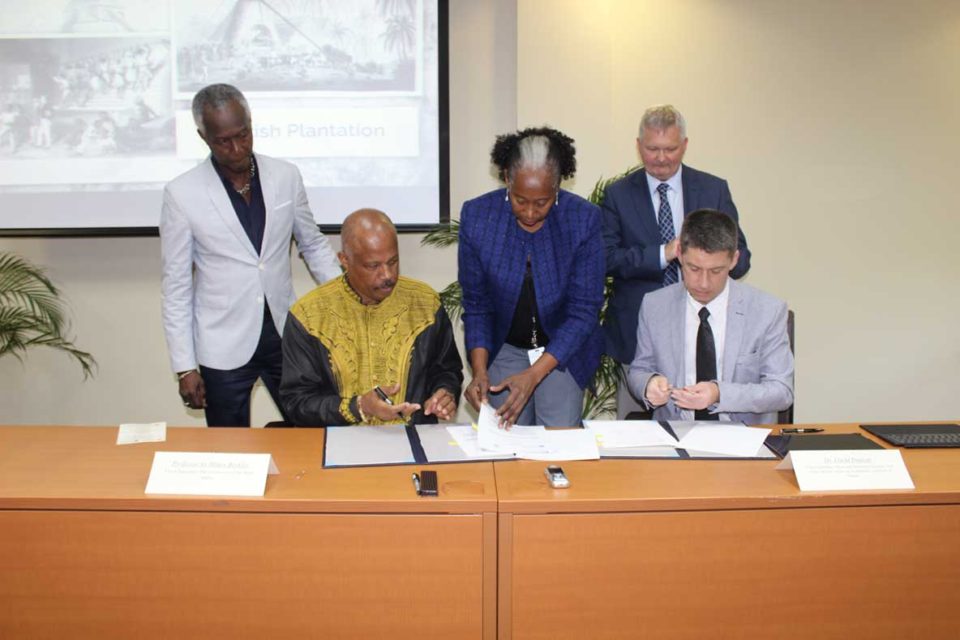
‘All Ah We A One’; Jamaican Diaspora or home on the Rock